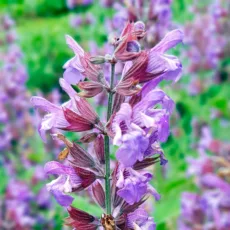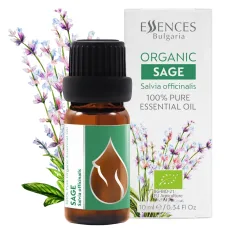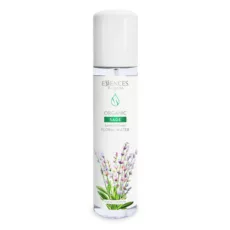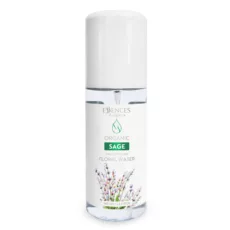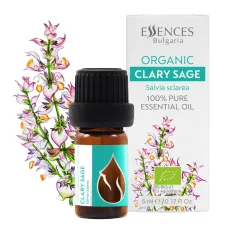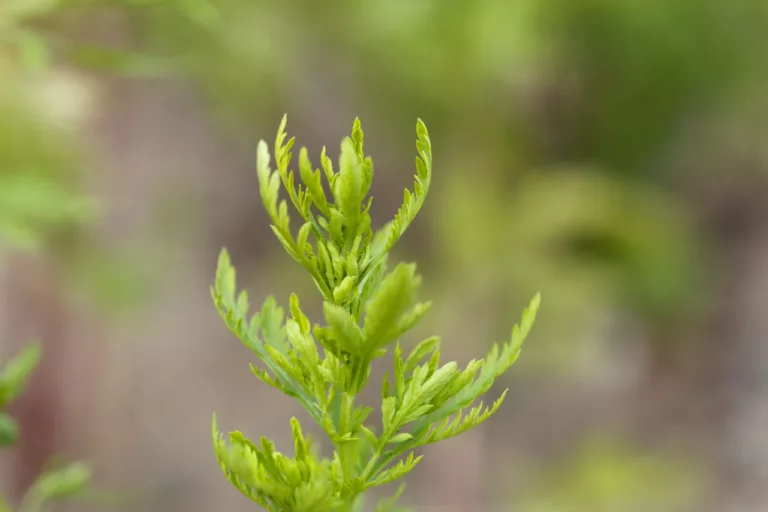Sage
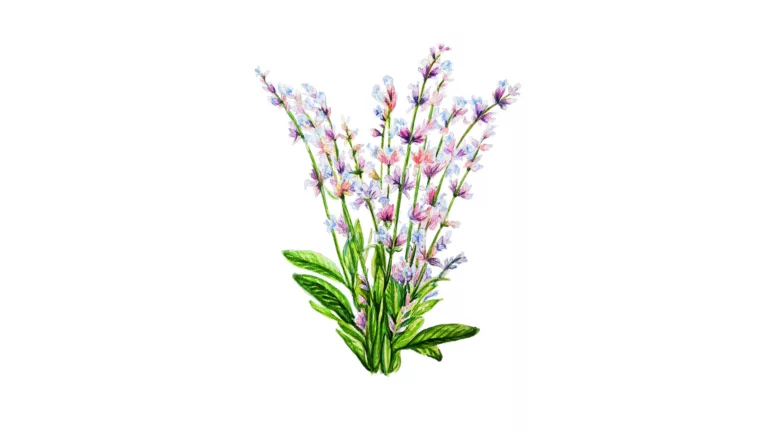
Garden sage (Salvia officinalis), also known simply as sage—the herb of longevity, a sacred herb, a lifesaver—is a widely distributed herb that blooms with bright purple, small flowers, and has elongated, evergreen, velvety leaves. The name of the herb comes from the Latin salveo, which literally means “health” or “healing.” Sage is a herb to which powers are attributed that can cure all kinds of illnesses.
“Why should a man die if sage grows in his garden?”—so goes an ancient Arab proverb. To this, the German nun and writer Hildegard of Bingen added that if sage grows in a person’s garden, from what could he die, except from the fact that death cannot be overcome.
Its fame dates back to the ancient physicians Hippocrates and Dioscorides, who considered sage a sacred plant and prescribed it against infertility. After the epidemics and the ensuing mass deaths in Ancient Egypt, women were forced to drink sage to increase their fertility. To this day the herb is used with great success for easy conception and childbirth.
Arab healers believed it ensured immortality, and later Europeans used the plant against spells. In the 17th century, garden sage became a preferred beverage in India and China.
There are also Christian myths about sage. According to them, while fleeing from King Herod’s soldiers, Joseph and the Virgin Mary hid the infant Jesus in a sage plant growing by the roadside, which was illuminated by divine light, and from that moment the plant acquired healing properties.
Traditionally, the herb is used to treat the digestive tract, the respiratory system, bronchitis, asthma, coughs, tonsillitis, night sweats, insomnia, depression, fatigue, and headaches. Externally, sage is especially recommended for all kinds of tonsillar inflammations, sore throat, purulent foci of the teeth, and inflammations of the pharynx and oral cavity.
The herb is a powerful antioxidant with strong anti-inflammatory and blood-clotting action. A decoction of sage is beneficial for burns, bites, skin diseases, as well as gynecological conditions. It improves memory, which is why it is recommended for Alzheimer’s and dementia. It makes hair strong and shiny.
